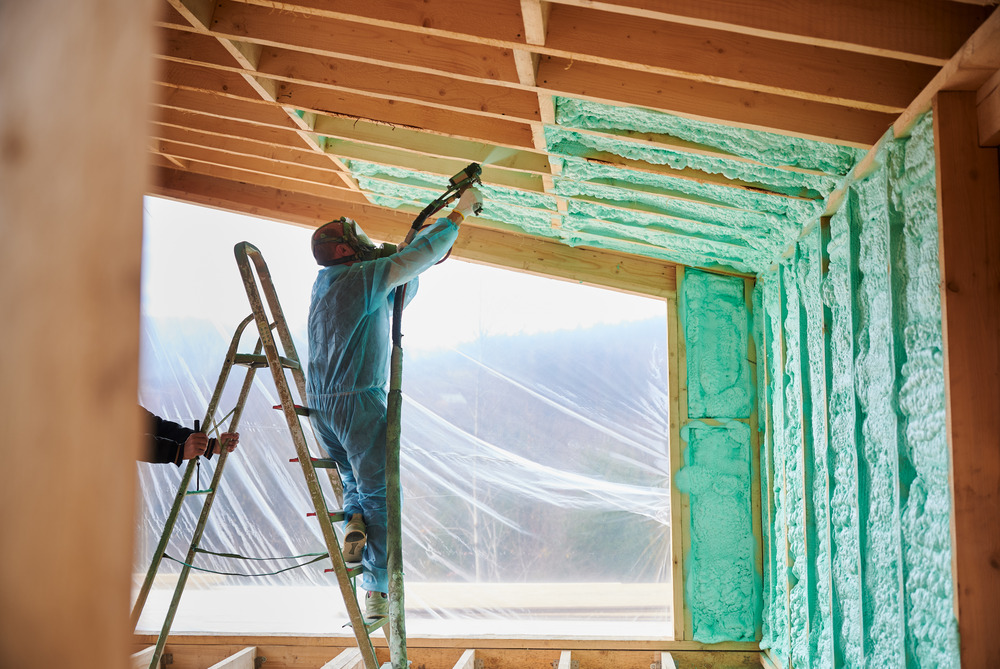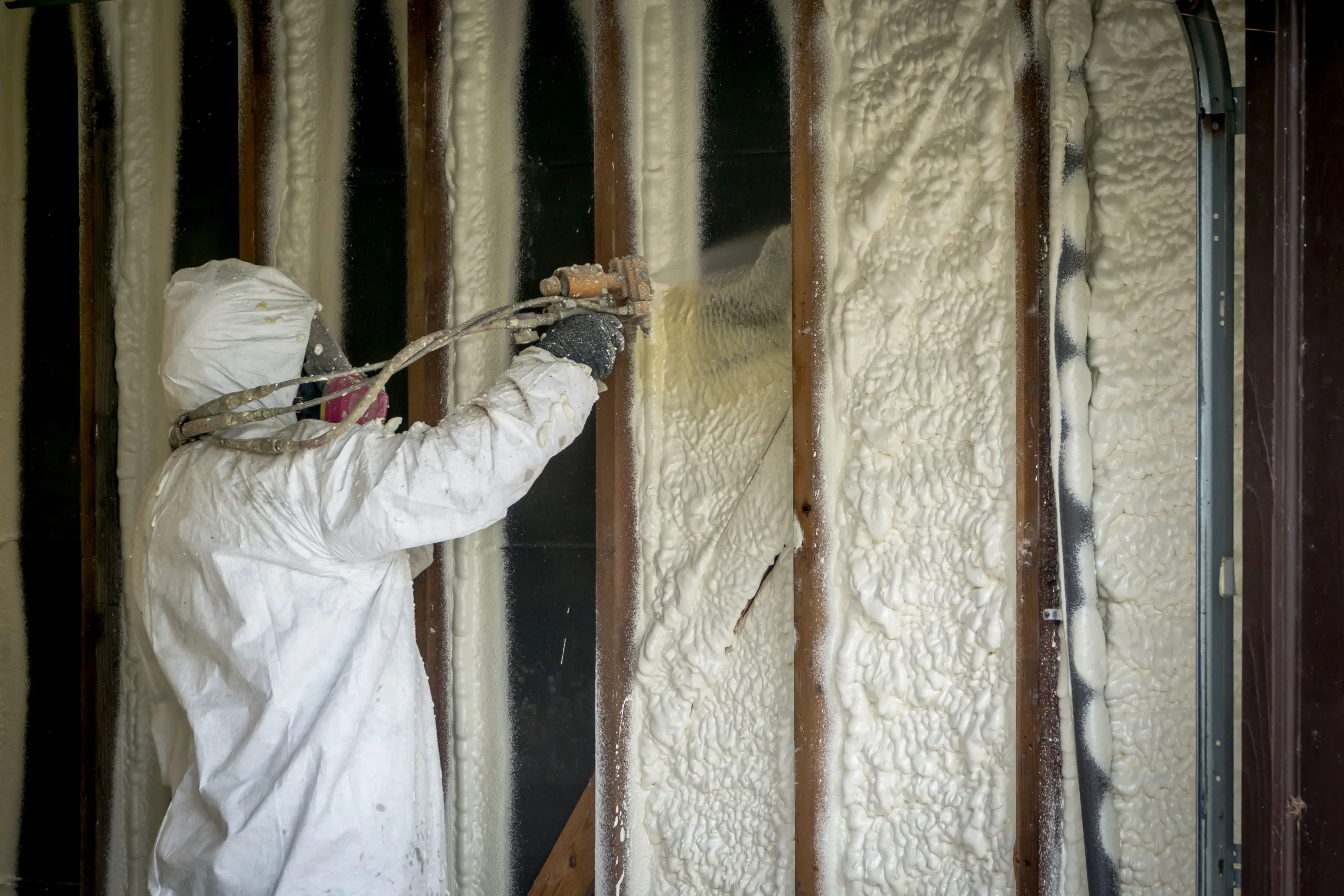Spray foam insulation contractors play a critical role in enhancing home comfort by reducing air leakage, stabilizing indoor temperatures, and improving energy efficiency. These professionals are trained to evaluate building envelopes and install high-performance spray foam in attics, walls, crawl spaces, and basements, addressing weak thermal spots that lead to energy loss.
Properly installed spray foam creates a continuous air barrier, which helps maintain consistent indoor temperatures and reduces HVAC strain. This results in fewer drafts, lower energy bills, and improved indoor air quality. The rest of this article breaks down the details of how spray foam insulation contractors contribute to home comfort and what factors homeowners should consider before hiring one.
Benefits of Hiring a Spray Foam Insulation Contractor
Enhanced Energy Efficiency
- Minimizes heat transfer by sealing air gaps
- Reduces energy bills by up to 50% (depending on home size and climate)
Indoor Comfort and Air Quality
- Maintains consistent temperatures across rooms
- Blocks moisture and allergens from entering the home
Structural Benefits
- Adds rigidity to walls and roof decks
- Protects against mold and moisture damage

Types of Spray Foam Used by Contractors
| Type | Composition | R-Value (per inch) | Expansion Rate | Best Use Areas |
| Open-cell spray foam | Light-density polyurethane | ~3.6 | Expands up to 100x | Interior walls, soundproofing |
| Closed-cell spray foam | Medium-density polyurethane | ~6.0–7.0 | Expands up to 30x | Exterior walls, basements, roofs |
Bonus Tip: Closed-cell foam provides a moisture barrier, making it ideal for flood-prone or humid regions.
Technical Specifications
| Feature | Open-Cell Foam | Closed-Cell Foam |
| Air Seal | Yes | Yes |
| Moisture Resistance | Low | High |
| Sound Dampening | High | Moderate |
| Vapor Barrier | No | Yes |
| Cost per Board Foot (avg.) | $0.45–$0.65 | $1.00–$1.50 |

The Spray Foam Installation Process
Step-by-Step Breakdown
- Site Assessment: The contractor evaluates the home for air leakage points and insulation gaps.
- Surface Preparation: Areas are cleaned and protected using covers or plastic sheeting.
- Foam Application: Foam is sprayed using a hose and expands on contact.
- Curing and Trimming: Foam cures in minutes and is trimmed to fit cavities.
- Post-Inspection: A final check ensures proper coverage and safety compliance.
Bonus Tip: Schedule your spray foam installation during mild weather months to minimize curing complications.
Comparison: DIY vs. Professional Contractor Installation
| Criteria | DIY Installation | Professional Contractor |
| Cost | Lower upfront | Higher upfront |
| Risk of Improper Coverage | High | Low |
| Equipment Required | Rental Needed | Included in service |
| Safety Compliance | Not guaranteed | Code-compliant & insured |
| Long-Term Effectiveness | Variable | Consistent and durable |
Bonus Tip: Improper installation can lead to off-gassing issues, trapped moisture, or reduced R-values.
Market Insights and Trends
- According to Allied Market Research, the global spray foam insulation market was valued at $1.9 billion in 2021 and is projected to reach $3.2 billion by 2031.
- Closed-cell spray foam is gaining traction due to its superior insulating properties and flood resistance in climate-challenged regions.
Things to Consider Before Making a Decision
- Building Code Requirements: Ensure the contractor adheres to local insulation and fire safety codes.
- Material Suitability: Choose foam type based on region, budget, and moisture exposure.
- Ventilation: Homes may require additional ventilation after foam installation due to improved air tightness.
- Certification: Check if the contractor is certified by organizations like SPFA (Spray Polyurethane Foam Alliance).
- Experience: Ask for project references or previous work portfolios.
Common Questions About Spray Foam Insulation Contractors
How long does spray foam insulation last?
Spray foam insulation typically lasts over 20 years without needing replacement, making it a durable solution.
Is spray foam safe for indoor environments?
Yes, once cured, spray foam is inert and does not emit harmful fumes. Contractors use protective gear during application to manage off-gassing.
Can spray foam be added to existing walls?
Yes, but it requires specialized equipment to inject foam through drilled holes or during renovations.
Does spray foam increase home resale value?
Yes, homes with modern insulation systems like spray foam often appeal more to energy-conscious buyers.
What certifications should a contractor have?
Look for SPFA certification or similar credentials that verify training and safety compliance.
Make the Right Decision
Spray foam insulation contractors play a vital role in achieving long-term home comfort and energy savings. A professional installer ensures maximum coverage, compliance with safety codes, and optimal material performance. Homeowners should assess their specific needs—climate, building design, moisture exposure—before hiring a contractor. Prioritize certified professionals who follow best practices and provide clear documentation.
Author: With over 6 years of experience in the construction and insulation industry, Christian Wayne Purpera has developed a strong focus on energy efficiency and concrete repair. He founded Polyco alongside his father to provide reliable, high-quality solutions in both spray foam insulation and concrete lifting for residential and commercial clients. Christian specializes in spray foam insulation, concrete lifting and leveling, and helping property and business owners enhance energy performance and safety using modern, cost-effective techniques.
Reviewer: Alexander Davis, with 11 years in spray foam application, provided a review that helped us better address the concerns and goals of companies working in both residential and commercial projects.